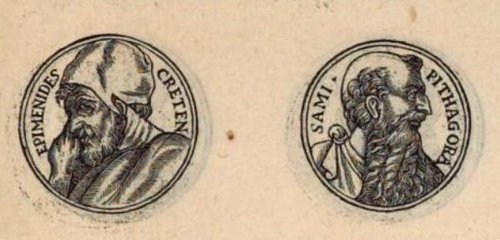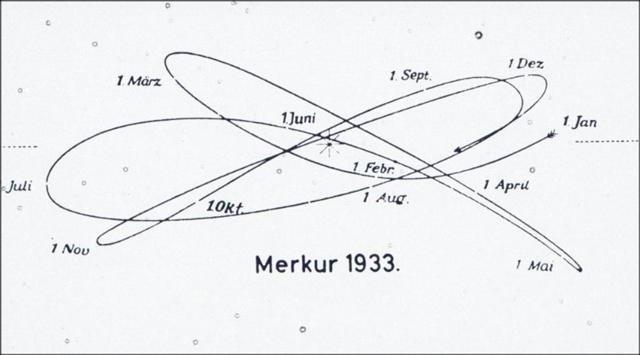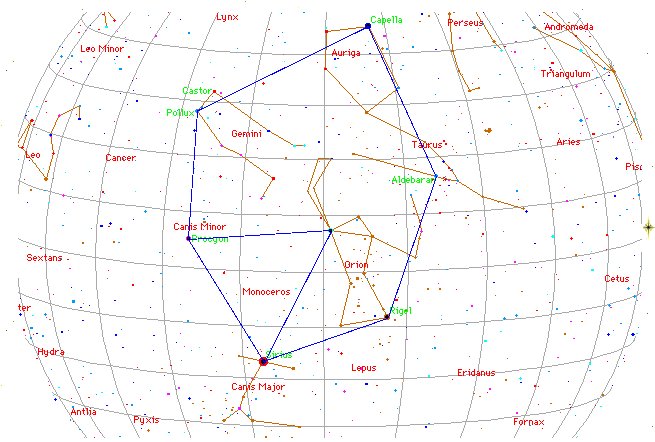|
29
There is always ambiguity in numbers. Therefore we must relate a number to a position in a part of the total net of associations.
... I have earlier tried to count the number of feathers, and the result became 57.(→ 3 * 19) ... 57 has been stated as the number of years Rip Van Winkle - alias for instance Epimenides - slept. ... The story of Rip Van Winkle is set in the years before and after the American Revolutionary War. Rip Van Winkle, a villager of Dutch descent, lives in a nice village at the foot of New York's Catskill Mountains. An amiable man whose home and farm suffer from his lazy neglect, he is loved by all but his wife. One autumn day he escapes his nagging wife by wandering up the mountains. After encountering strangely dressed men, rumored to be the ghosts of Henry Hudson's crew, who are playing nine-pins, and after drinking some of their liquor, he settles down under a shady tree and falls asleep. He wakes up twenty years later and returns to his village. He finds out that his wife is dead and his close friends have died in a war or gone somewhere else. He immediately gets into trouble when he hails himself a loyal subject of King George III, not knowing that in the meantime the American Revolution has taken place. An old local recognizes him, however, and Rip's now grown daughter eventually puts him up ... ... The original story was by Diogenes Laertius, an Epicurean philosopher circa early half third century, in his book On the Lives, Opinions, and Sayings of Famous Philosophers. The story is in Chapter ten in his section on the Seven Sages, who were the precursors to the first philosophers. The sage was Epimenides. Apparently Epimenides went to sleep in a cave for fifty-seven years. But unfortunately, 'he became old in as many days as he had slept years'. Although according to the different sources that Diogenes relates, Epimenides lived to be one hundred and fifty-seven years, two hundred and ninety-nine years, or one hundred and fifty-four years. A similar story is told of the Seven Sleepers of Ephesus, Christian saints who fall asleep in a cave while avoiding Roman persecution, and awake more than a century later to find that Christianity has become the religion of the Empire ...
With this in mind we can once again count 'feathers', however now not by adding but by multiplying (→ Mercury): ... Ganz ähnlich is der Name 'Gott von Duazag' des Gottes Nabū ... zu erklären. Er bezeichnet ihn als den Gott des Wachtstums, welches als aus dem Osten stammend betrachtet wird, weil die Sonne, die das Wachstum bringt, im Osten aufgeht. Dass aber Nabū als Ost-Gott aufgefasst wurde, hängt damit zusammen, dass sein Stern, der Mercur, nur im Osten oder Westen sichtbar ist ...
Number 168 (= 12 * 14) above suggests heliacal Betelgeuze (the 'Moist One' on the Brink of the Milky Way River):
As well as these three 'runs' of a Mayan cycle:
*88 (the right ascension day for heliacal Betelgeuze) * 3 = *264 → 364 - 100. And 3 * 115 (synodic cycle of Mercury) = 345 (→ the basic Pythagorean triangle: 9 + 16 = 15) = 80 + 265. According to the Mayas the Creation of our Present World occurred in August 13 (225 → 200 + 25), and 225 - 168 = 57. Furthermore, 15 days (→ 360 / 24 = 1h) after August 13 was day 240. I.e., 168 + 57 + 15 = 240. Although the mortally wounded poor Kuukuu (→ ... the line exactly around the middle of the sphere is called ke alanui a ke ku'uku'u, the road of the spider ...) was abandoned :by his comrades already after 27 days (→ the 'thrice nine hallowed days' of Pythagoras), when they left him down in his cave at Oromanga. ... As soon as he had asked, 'Where are you?' the voices [te reo] of the stone heaps [te Pipi horeko] replied, 'Here we are!' All (the youths) said [he ki anake], 'Hey you! That was well done!' He (i.e., Ira) said, 'Let's go! We shall go to Papa O Pea'. They all got up [he ea] and moved on. On the twentieth day of the month of August ('Hora Iti') they went to Papa O Pea ... [E:27-30] ... As has already been mentioned, the Delphians worshipped Dionysus once a year as the new-born child, Liknites, 'the Child in the Harvest Basket', which was a shovel-shaped basket of rush and osier used as a harvest basket, a cradle, a manger, and a winnowing-fan for tossing the grain up into the air against the wind, to separate it from the chaff. The worship of the Divine Child was established in Minoan Crete, its most famous early home in Europe. In 1903, on the site of the temple of Dictaean Zeues - the Zeus who was yearly born in Rhea's cave at Dicte near Cnossos, where Pythagoras spent 'thrice nine hallowed days' of his initiation - was found a Greek hymn which seems to preserve the original Minoan formula in which the gypsum-powdered, sword-dancing Curetes, or tutors, saluted the Child at his birthday feast. In it he is hailed as 'the Cronian one' who comes yearly to Dicte mounted on a sow and escorted by a spirit-throng, and begged for peace and plenty as a reward for their joyful leaps ...
The 'twentieth day of the month of August' was one week after August 13, and 225 + 7 = 232 → 29 * 8 → 'two hundred and ninety-nine' minus one. → twice 149 = 298 = twice twice 21 weeks = twice 42 weeks = 84 weeks → Julian equinox in March 25 (84 = 12 weeks). Thus we ought to count 232 - 84 = 148 (→ 168 - 20): ... He wakes up twenty years later and returns to his village ... And evidently it took place in the Golden Age of the Bull. Because 28 May (84 + 64) + 12 weeks = 232 (→ 168 + 64):
|
||||||||||||||||||||||||||||||||||||||||||||||||||




.jpg)

